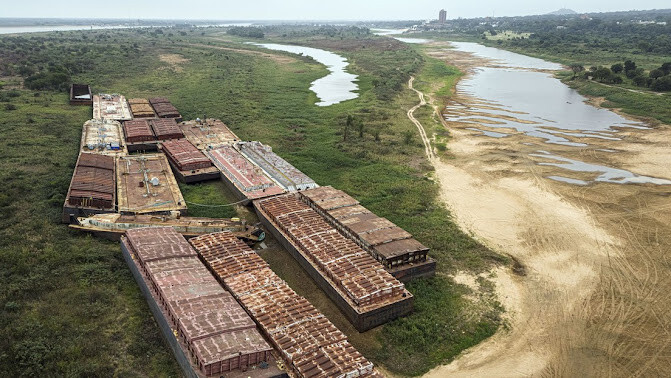
[GLOBAL ECONOMIC TIMES] Paraguay's economy is expected to take a hit as water levels in the Paraguay River fall to the lowest level in history. Rolando de Barros, Minister of Environment and Sustainable Development, warned in a recent press conference that the decrease in the water level in the Paraguay River will cause an increase in logistics costs and inflation, which will have a significant impact on the Paraguayan economy.
The Paraguay River is a key transportation route for the Paraguayan economy. Since 80% of Paraguay's total export volume is transported through this river, a decrease in water levels directly leads to an increase in logistics costs, causing an increase in prices. In particular, rising transportation costs for major export items such as agricultural products and grains are very likely to lead to higher consumer prices.
Reducing water levels in the Paraguay River may also affect hydroelectric power generation, resulting in reduced energy production. Since Paraguay is a country that imports all of its hydrocarbons, a decrease in the proportion of hydroelectric power generation requires importing more oil to produce electricity, which could lead to an increase in fuel prices.
The decrease in water level in the Paraguay River is a representative example that shows the severity of the drought caused by climate change. Prolonged droughts cause serious environmental problems, such as the destruction of aquatic ecosystems and the reduction of biodiversity.
Experts noted that the decline in water levels in the Paraguay River is not a problem that can be solved in the short term, and emphasized that the Paraguayan government must make active efforts to improve the water management system and respond to climate change.
[Copyright (c) Global Economic Times. All Rights Reserved.]






























